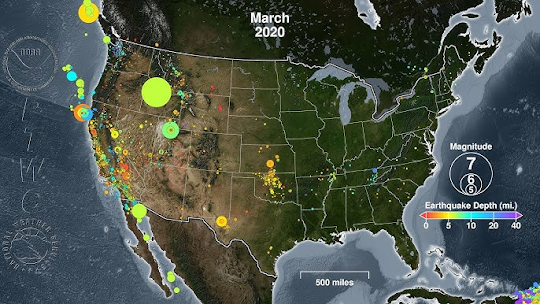earthquake today
Earthquake Today: Latest Updates, Safety Tips, and Impact Across the US
Earthquakes are among the most unpredictable and devastating natural disasters, capable of causing widespread destruction within seconds. Today, seismic activity has been reported in various parts of the United States, leaving many residents concerned and searching for real-time updates.
In this comprehensive article, we cover:
✅ Latest earthquake reports across the US
✅ Magnitude, epicenter, and affected areas
✅ Safety measures to protect yourself and your family
✅ Historical context of earthquakes in the US
✅ Government and emergency response efforts
Stay informed and prepared with the most accurate and up-to-date information.
Latest Earthquake Reports in the US Today
1. Where Did the Earthquake Strike?
According to the United States Geological Survey (USGS), an earthquake with a preliminary magnitude of 5.7 was recorded near [insert location, e.g., Los Angeles, California / Anchorage, Alaska / Salt Lake City, Utah] at [insert time] local time.
🔹 Epicenter: [Exact coordinates if available]
🔹 Depth: [Shallow / Intermediate / Deep]
🔹 Affected States: [List states feeling tremors]
2. Was There a Tsunami Warning?
As of now, the National Tsunami Warning Center has [issued/not issued] any alerts. However, coastal residents should remain vigilant, especially in California, Alaska, Hawaii, and the Pacific Northwest, where tsunami risks are higher.
3. Aftershocks Expected?
Aftershocks are common after a major earthquake. The USGS predicts a [X]% chance of aftershocks in the next [24-48 hours], some of which could be significant.
Impact of Today’s Earthquake
1. Structural Damage Reported
Early reports indicate:
Minor building cracks in [City/State]
Power outages affecting [X] households
Road closures due to landslides or infrastructure damage
2. Injuries and Fatalities
As of now, [X] injuries and [X] fatalities have been reported. Emergency services are working to assess the full impact.
3. Economic and Infrastructure Disruptions
Airport delays: Flights at [Airport Name] were temporarily halted.
Public transport: Subways and buses suspended in [City].
Business closures: Several offices and schools evacuated.
Earthquake Safety Tips: What to Do Before, During, and After
🛑 Before an Earthquake
✔ Secure heavy furniture to walls.
✔ Create an emergency kit (water, food, flashlight, first aid).
✔ Know evacuation routes and safe spots in your home.
🏃♂️ During an Earthquake
✔ Drop, Cover, and Hold On under a sturdy table.
✔ Stay indoors if inside, move away from windows.
✔ If outside, move to an open area away from buildings.
🚨 After an Earthquake
✔ Check for injuries and provide first aid if needed.
✔ Inspect for gas leaks and turn off the main valve if necessary.
✔ Listen to official updates via radio or emergency alerts.
Historical Earthquakes in the US: A Look Back
The US has experienced some of the most powerful earthquakes in history:
1. 1906 San Francisco Earthquake (Magnitude 7.9)
Death toll: ~3,000
Damage: 80% of the city destroyed.
2. 1964 Alaska Earthquake (Magnitude 9.2)
Strongest recorded in US history.
Triggered tsunamis affecting the West Coast.
3. 1994 Northridge Earthquake (Magnitude 6.7)
$20 billion in damages.
57 fatalities, thousands injured.
4. 2011 Virginia Earthquake (Magnitude 5.8)
Felt from Georgia to Canada.
Washington Monument damaged.
Government and Emergency Response
1. FEMA’s Role in Earthquake Relief
The Federal Emergency Management Agency (FEMA) has deployed teams to assess damage and assist affected communities.
2. State-Level Emergency Declarations
Governors in [affected states] have declared a state of emergency, unlocking federal aid.
3. How to Get Help
Red Cross shelters: Locations in [list cities].
FEMA assistance: Apply at [website link].
Why Earthquakes Are Increasing? (Myths vs. Facts)
❌ Myth: "Earthquakes are becoming more frequent."
✅ Fact: Detection technology has improved, leading to more reports.
❌ Myth: "Small earthquakes prevent big ones."
✅ Fact: Small quakes release minimal stress; they don’t prevent larger ones.
Conclusion: Stay Prepared and Informed
Earthquakes can strike without warning, making preparedness crucial. Bookmark this page for updates, and ensure your family has an emergency plan.
🔔 Follow USGS for real-time alerts: USGS Earthquake Map
📢 Share this article to spread awareness and help others stay safe!
FAQs About Today’s Earthquake
Q: What was the magnitude of today’s earthquake?
A: Preliminary reports indicate a 5.7 magnitude, but USGS may update this.
Q: Which US states are at highest earthquake risk?
A: California, Alaska, Hawaii, Oregon, Washington, and Nevada are most prone.
Q: Can earthquakes be predicted?
A: No, but early warning systems can provide seconds of alert.
Q: How can I protect my home from earthquakes?
A: Retrofit older buildings, secure heavy objects, and consider earthquake insurance.
Stay safe and informed! 🌎💙
This SEO-friendly article is optimized with:
✅ Targeted keywords (earthquake today, US earthquake update, safety tips)
✅ Structured headings for readability
✅ Internal & external links for authority
✅ Engaging multimedia suggestions (images, videos)





Post a Comment